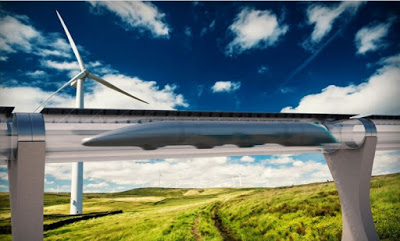“Slovakia is a technological leader in the automotive, material science, and energy industries, many of the areas that are integral to the Hyperloop system ,” said Dirk Ahlborn, HTT CEO. “Having a European Hyperloop presence will incentivize collaboration and innovation within Slovakia and throughout Europe. With our project in Quay Valley, this agreement with Slovakia, and future developments with other regions of the world, HTT truly has become a global movement.”
“Hyperloop in Europe would cut distances substantially and network cities in unprecedented ways. A transportation system of this kind would redefine the concept of commuting and boost cross-border cooperation in Europe,” said Vazil Hudak, Minister of Economy of the Slovak Republic. “The expansion of Hyperloop will lead to an increased demand for the creation of new innovation hubs, in Slovakia and all over Europe.”
A Bratislava-to-Vienna route could take about 8 minutes at Hyperloop’s full speed; a Bratislava-to-Budapest route just 10 minutes. A route between Bratislava and Košice—a distance of 400 kilometers (250 miles)—could also be considered and would connect the eastern and western sides of Slovakia with a short trip of only 25 minutes, reducing the typical 4.5 hour car ride dramatically.
“In 1896 the first electric underground railway system was built in Budapest and already in 1914 the first electric trainline between Bratislava and Vienna was created.” said Bibop Gresta, HTT COO. “Slovakia continues to confirm its position as one of the most forward thinking countries by embracing innovations like the Hyperloop transportation system.”
Image Credit: HTT / JumpStartFund




















